Why Does Your Cat Howl Before After Using the Litter Box?
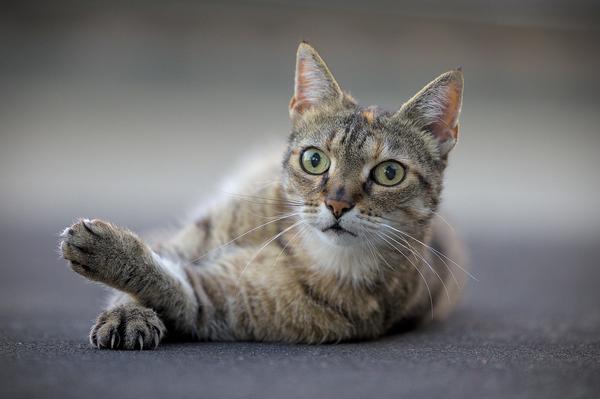
Ever wondered why your cat lets out a howl before and after hopping into the litter box?
It's like a feline symphony, isn't it?
But hold up, I get it.
You're concerned.
Your fur baby's strange behavior has you all like, "What the whiskers is going on?"
Well. buckle up because we're about to embark on a journey of cat toilet mysteries. 😺
Why does your little fluffball turn into a vocal virtuoso pre and post bathroom breaks?
Let's dive in and uncover the purrfect explanation together.
So, grab some catnip and let's get this show on the road.
Common Causes of a Cat Howling Before and After Using the Litter Box
Digestive issues can cause howling before and after using the litter box
You know, sometimes cats howl before and after using the litter box because they feel uncomfortable or in pain due to digestive problems.
Things like constipation, diarrhea, or even blocked intestines can make them howl out of distress.
If you hear your cat howling during these times, pay attention and take action to relieve their discomfort.
Definitely not something to ignore!
Kittens may howl due to predators or urinary tract infections
Did you know that kittens can meow before toileting as a way to warn potential predators?
It's really surprising how inherently clever they are.
However, that's not the only reason they howl.
Sometimes, kittens may meow before and after using the litter box because of urinary tract infections.
These poor little ones just want to let you know that something isn't right down there.
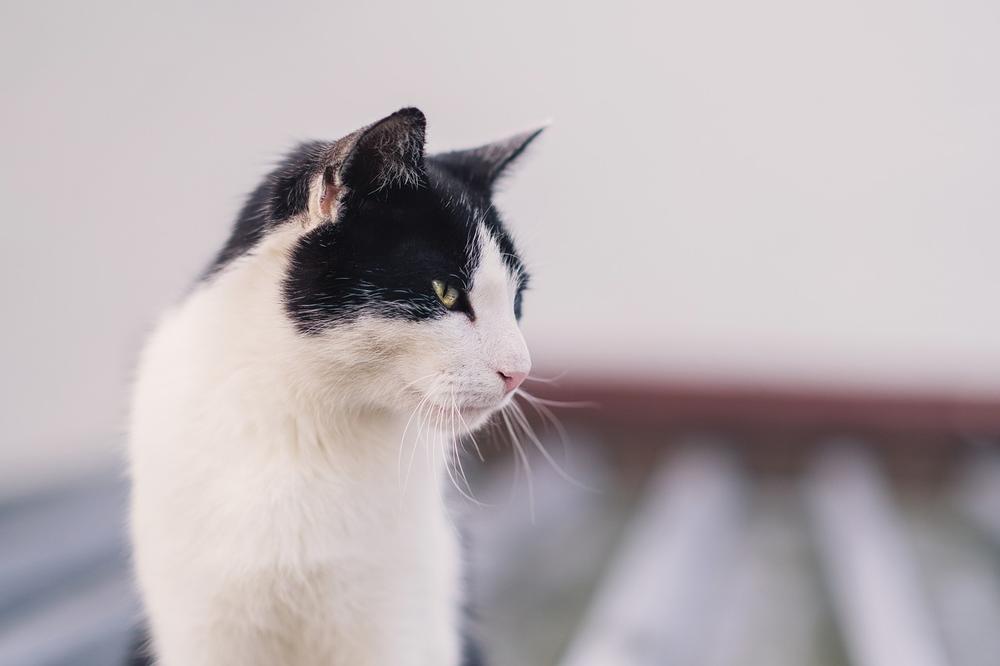
So keep an eye out for any unusual behavior!
Attention-seeking or communication? Cats caterwaul to get noticed
I'm sure you've heard your cat make that high-pitched howl-yowl sound called caterwauling before.
Yes, that's their way of saying, "Hey!
I need some attention here!" or "Listen up...
I have something vital to say!"
Cats use caterwauling to express their needs, desires, or emotions when words aren't enough for them. Just like us humans, right?
But if your cat starts howling excessively or unusually, it's important for you to monitor for any signs of health issues or changes in stool appearance.
Keeping an eye out for weird poop might sound gross, but it’s crucial for your fur baby's well-being!
But before we dive into specific health conditions that can cause howling, let me introduce you to a fascinating concept...
The hidden messages behind your cat's vocalizations.
You won't believe what they're trying to tell you. Keep reading to discover the intriguing secrets of your feline friend's meows:
Medical Conditions That May Contribute to a Cat Howling in the Litter Box
Howling and meowing in the litter box can be a sign of various medical conditions.
Let's dive into it, shall we?
- FLUTD (Feline Lower Urinary Tract Disease) can cause painful urination, leading to howling during litter box use.
- Urinary tract infections, cystitis, constipation, diarrhea, and intestinal blockages caused by worms may also manifest through vocalizations in the litter box.
- Older cats or those with stomach upset might have difficulty using the litter box, resulting in distress and discomfort expressed through yowling and howling.
- Cats crying loudly before defecating could indicate constipation, diarrhea, or an intestinal blockage.
- FIC (Feline Idiopathic Cystitis), bladder stones, and urinary obstruction are among the medical conditions that may cause meowing in the litter box due to pain and irritation during urination.
- Meowing during defecation may be a result of painful constipation.
- Elderly cats with arthritis or cognitive dysfunction syndrome might also contribute to meowing in the litter box.
- Physical distress, pain, tummy issues, arthritis, injuries, thyroid disease, and kidney malfunction can all lead to caterwauling after using the litter box.
Considering the different underlying causes, you must use varied approaches to address this behavior. 😺
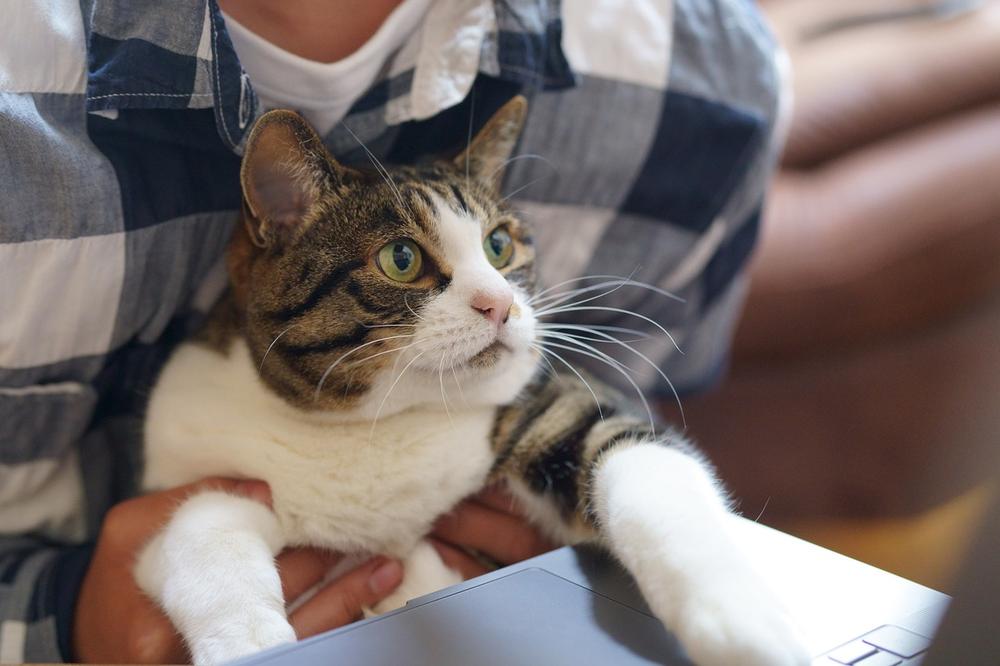
And it gets worse:
Stress and vocalization within the litter box can potentially trigger episodes of Feline Idiopathic Cystitis (FIC).
So, what potential stressors could be causing your cat's howling?
Let's explore the impact of changes in household composition in the next section...
Stressful Social and Environmental Factors Impact Cat's Litter Box Vocalization
Household changes, like adding new pets or family members, can stress your cat.
This stress may cause more vocalization when they're in the litter box.
Extra vocalization and stress could trigger episodes of Feline Idiopathic Cystitis (FIC).
To prevent FIC occurrences, you should identify stressors and minimize their impact.
Insecurity, anxiety, and frustration during family or living situation changes can lead to caterwauling behavior.
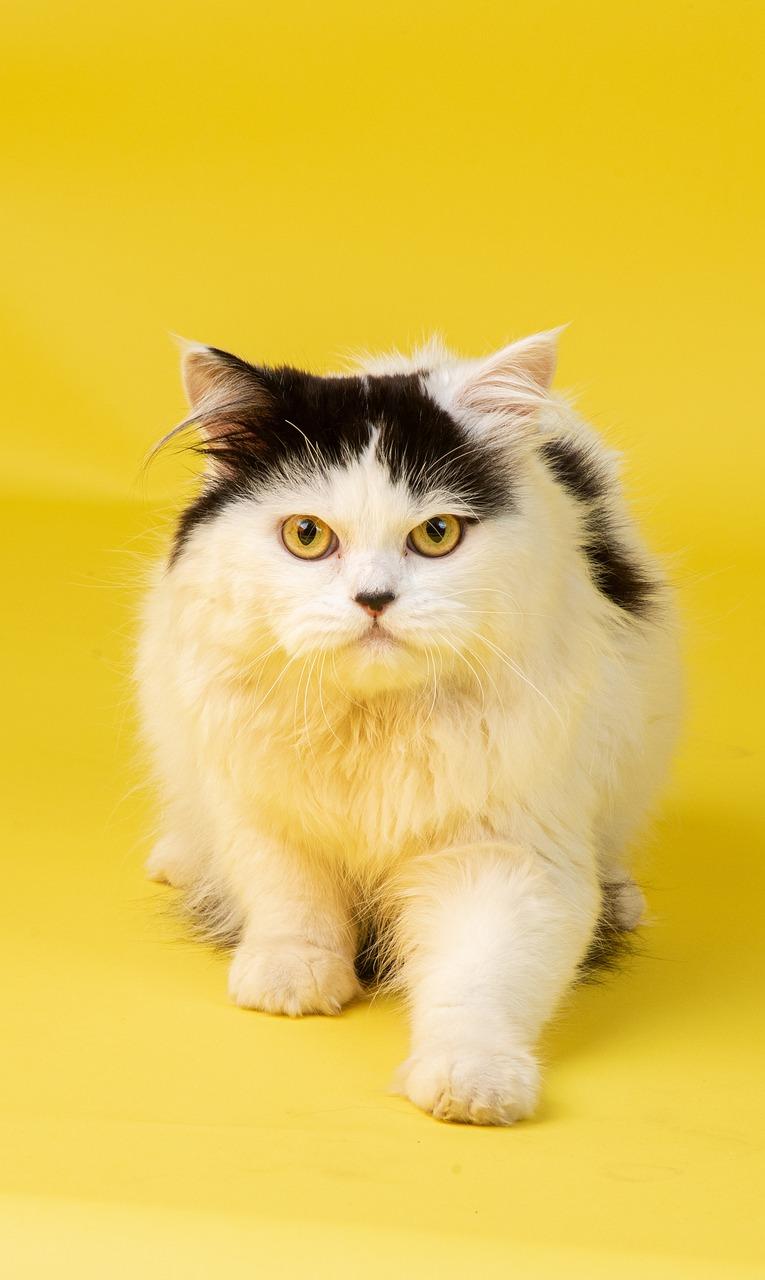
Caterwauling is a way cats seek attention, affection, water, or companionship.
Keep an eye on your furry friend during these times to ensure their well-being.
So, if you've noticed your cat displaying more vocalization and stress while using their litter box, it's important to address the underlying factors.
As someone who has experienced this issue firsthand, I know how perplexing it can be.
That's why I highly recommend checking out my article Why Cat Keeps Meowing at Door for insights into why your cat may be exhibiting this behavior and potential solutions to address it.
Trust me, you won't want to miss it!
Addressing Litter Box Cleanliness and Its Effect on a Cat's Vocalization
To keep your cat happy and prevent howling, you gotta clean that litter box. Here are some tips for ya:
- Scoop the box multiple times a day so you can get rid of that waste pronto. It'll keep things clean and stop any nasty odors.
- Make sure you wash and disinfect the box regularly. Use mild soap and water, no harsh chemicals that might irritate your furry friend.
- Don't forget to change the litter often. This prevents bacteria from growing and gives your cat a fresh place to do their business. The frequency depends on how many cats use the box and what they like.
- Find a quiet spot for the litter box. Your cat needs some privacy and putting it near loud appliances or busy areas will stress them out.
- Pay attention to your cat's meowing habits after they use the box. If they're always howling or acting distressed, it might mean changes need to be made to the box or cleaning routine.
- If you make any changes to the litter box, do it gradually. Cats can be sensitive to different litter types, depths, or placements. Ease them into it to avoid unnecessary stress.
- Keep an eye on the cleanliness of the litter box and adjust as needed based on your cat's behavior and meows.
So remember, if you want a happy and quiet kitty, keep that litter box clean and meet their needs.
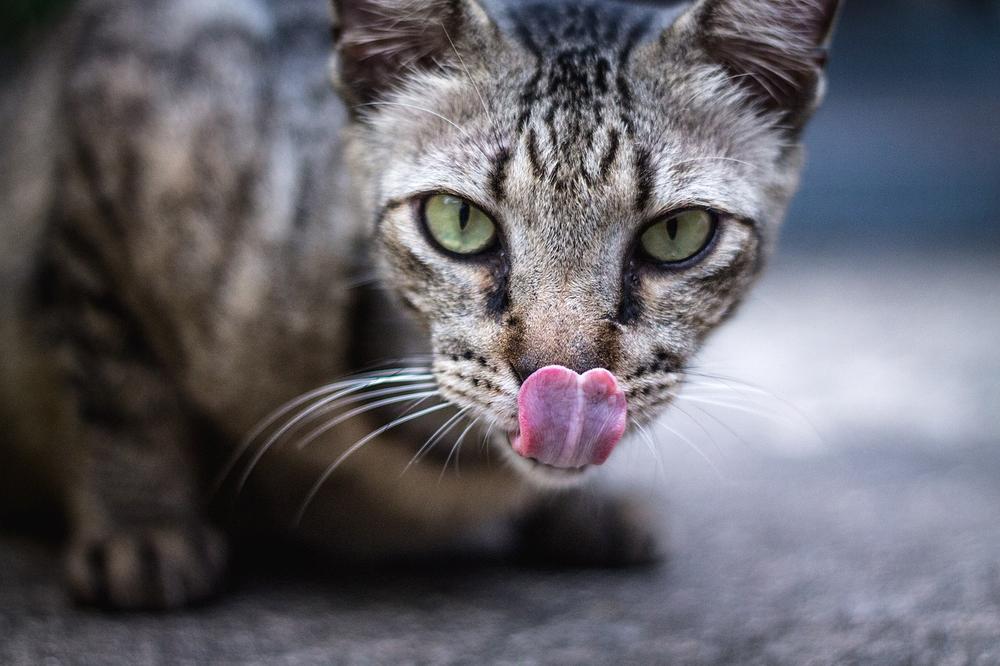
And now, we dive even deeper into the reasons why our feline friends unleash their vocal prowess in the litter box... So, sit back and get ready to uncover the secret conversations your cat is having with you and their surroundings.
Trust me, this is one article you won't want to miss!
Exploring Territory Marking as a Possible Reason for a Cat's Vocalization in the Litter Box
Cats make noises in the litter box for various reasons.
One reason could be claiming their territory.
When there's conflict or changes among cats in a household, they may howl or yowl in the litter box as a way to assert dominance and mark their turf.
This is like them saying, "Hey, back off!" Additionally, female cats in heat also make strange noises in the litter box to attract male attention.
Both males and females may produce unusual sounds if they feel threatened and want to protect their territory.
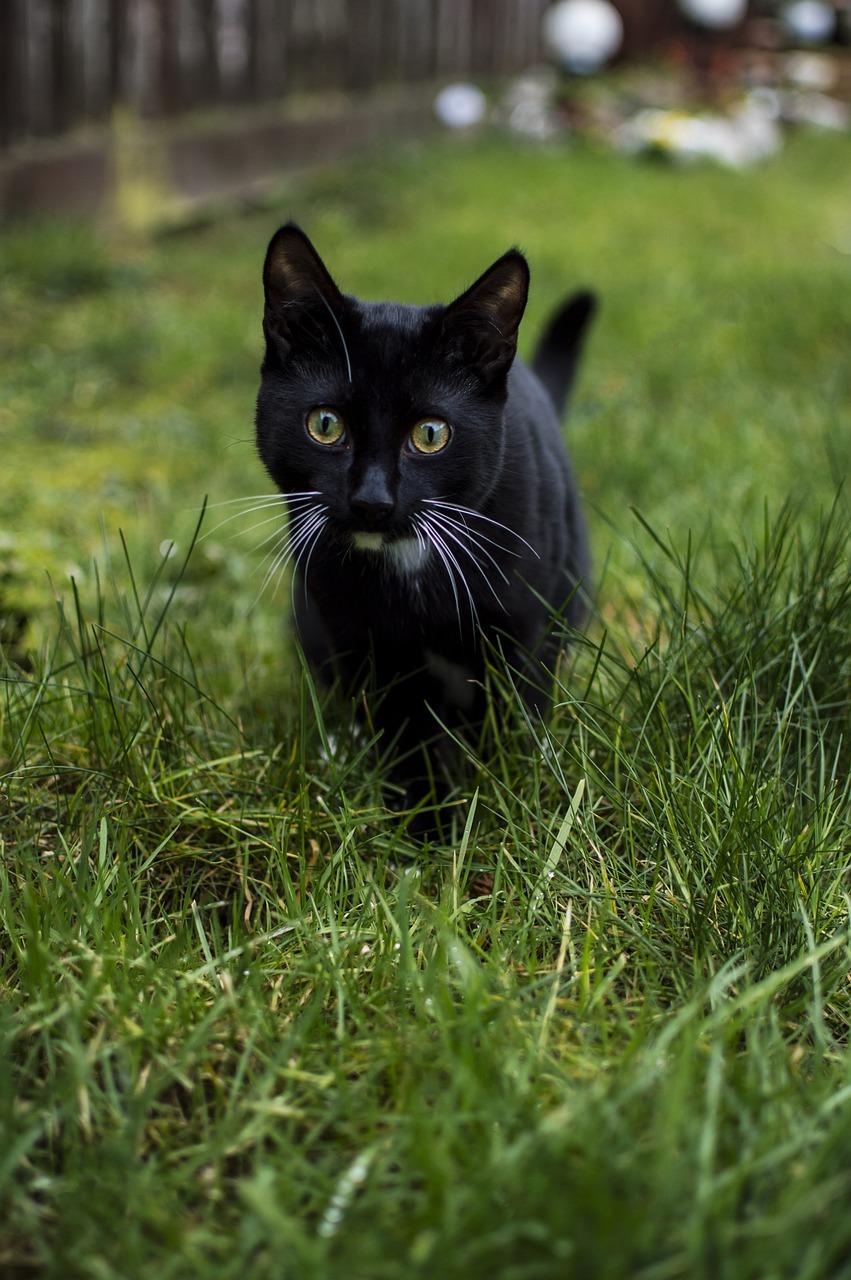
Basically, when cats vocalize in the litter box, they're trying to communicate with you.
They have something critical to say.
So, the next time you hear your cat making noise in the litter box, take notice!
They might be trying to tell you something.
But what if your cat is not older and doesn't seem to be asserting dominance or experiencing any excitement?
Don't worry, there are still other possible reasons behind their vocalizations in the litter box:
How a Cat's Age and Context Can Influence Vocalization During Litter Box Use
You gotta know how a cat's age and what's going on around them can affect their meows when they're in the litter box.
Here's 10 things to think about:
- Older cats might make some noise while doing their business because of age-related stuff like arthritis or cognitive problems.
- If your cat has always let out a yowl after pooping, it's probably just excitement.
- Kittens often meow for treats after using the litter box, but don't encourage that behavior when they're all grown up.
- Cats who run around after doing their thing are usually pretty happy about it.
- Cats with cognitive issues might wail because they're confused and frustrated.
- Switching up where the litter box is, trying different types of litter, or keeping it clean could trigger meowing.
- Your cat's vocalization might be affected by other animals or people hanging around during bathroom time.
- If your cat seems anxious or scared, they might make more noise while using the litter box.
- Sometimes health problems like urinary tract infections can cause discomfort and meowing.
- Keeping the litter box clean and getting regular check-ups from the vet can help with any meowing problems.
Taking care of your cat and giving them the attention they need is super important for their overall well-being.
Implications of Vocalization in the Litter Box
- Cats howl before and after using the litter box to communicate discomfort or irritation.
- Kittens may meow before using the litter box to warn away predators or due to urinary tract infections.
- Howling and yowling before and after pooping is common, but watch out for health issues.
- Caterwauling is a high-pitched howl-yowl sound cats make to seek attention or convey something.
- Howling and meowing in the litter box can signal both behavioral habits and health issues.
- Conditions like urinary tract infections, constipation, and intestinal blockages can cause meowing.
- Older cats or those with stomach upset may struggle with using the litter box.
- Cats crying loudly before defecating could suggest constipation, diarrhea, or an intestinal blockage.
- Stressors, insecurity, anxiety, and frustration can trigger caterwauling behavior in cats.
- Caterwauling may be a means for cats to seek attention, affection, water, or companionship.
- Howling after using the litter box may indicate that it needs to be cleaned.
- Proper litter box hygiene is crucial to prevent cats from howling.
- Cats may howl if there are changes in their litter box setup.
- Cats howl in the litter box to ensure no one bothers them.
- Females caterwaul in heat, and both males and females may make noises to protect their territory.
And that wraps up today's article.
If you wish to read more of my useful articles, I recommend you check out some of these: Why Does My Cat Drag My Clothes Into the Litter Box, Cat Digging in the Litter Box, Why Does My Cat Play in the Litter Box, Cat Runs Out of the Litter Box While Pooping, and Do Cats Eat Their Own Poop
Talk soon,
-Sarah Davis